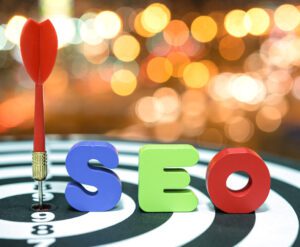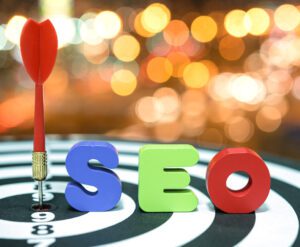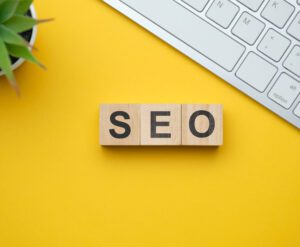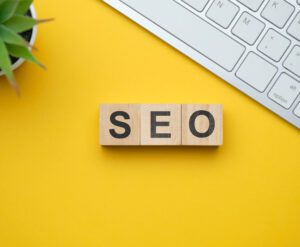Lead generation is the process of attracting and qualifying potential customers for your business. It is a crucial part of any marketing strategy, as it helps you identify and reach the people most likely to be interested in your offer. Lead generation has become critical to growing a successful business in today’s highly competitive business landscape. It involves identifying and attracting potential customers who have expressed interest in your products or services. By implementing effective lead-generation strategies, businesses can expand their customer base and increase sales. In this article, we will explore some key tactics and best practices for utilizing lead generation to fuel the growth of your business.
Let’s start with defining a lead. Then, we’ll cover why you need lead generation and how to qualify someone as a lead. Soon, you’ll know why inbound lead generation is more effective than buying leads.
What are leads?
A lead is any individual who expresses interest in a company’s product or service in any fashion. After initiating the contact (by submitting personal information for an offer, trial, or subscription), leads typically hear from a business or organization instead of receiving an unsolicited call from a stranger who bought their contact information.
Suppose you participate in an online survey to learn more about how to care for your car. A day or so later, you receive an email from the auto company that conducted the survey with information on how they can assist you with car maintenance. This process would be much less intrusive than if they just called you out of the blue without knowing whether you care about car maintenance, right? This is what it’s like to be a leader. And from a business perspective, the information the auto company obtains about you from your survey responses enables them to personalize that initial communication to address your existing issues — and to avoid wasting time calling leads who are not interested in auto services.
Leads are an aspect of consumers’ broader lifecycle when transitioning from visitor to customer. It’s important to note that not all leads are qualified in the same way. There are various categories of leads based on their qualification status and lifecycle stage.
Here are some of the most effective lead-generation strategies that you can use to fuel the growth of your business:
Define Your Target Audience
Before diving into lead generation, it is crucial to define your target audience clearly. Understanding your ideal customers will enable you to tailor your marketing efforts more effectively. Develop buyer personas that outline your target audience’s demographics, interests, pain points, and preferences. This information will guide your lead-generation strategies and help you reach the right people.
Create Compelling Content
High-quality content plays a vital role in attracting and engaging potential leads. Develop a content marketing strategy that provides value to your target audience. Create informative blog posts, ebooks, videos, podcasts, and other forms of content that address their pain points and offer solutions. By establishing yourself as an industry expert, you can build trust with your audience and generate more leads.
Creating and sharing valuable content that your target audience will find interesting and informative is a great way to generate leads. This content can include blog posts, articles, infographics, videos, and more.
Optimize Your Website for Lead Generation
Your website is a powerful tool for lead generation. Optimize it to capture the attention of visitors and convert them into leads. Use clear and compelling calls-to-action (CTAs) throughout your website to encourage visitors to take the desired action, such as subscribing to a newsletter, downloading a resource, or requesting a consultation. Implement lead capture forms strategically to gather contact information from interested prospects.
Leverage Social Media Platforms
Social media platforms provide vast opportunities for lead generation. Identify the platforms where your target audience is most active and engage with them through consistent and valuable content. Share your blog posts, videos, and other content to attract attention and drive traffic to your website. Utilize lead generation tools offered by social media platforms to capture leads directly from the venues and integrate them into your sales funnel.
An effective lead generation strategy involves using social media platforms like LinkedIn, Twitter, and Facebook to connect with potential customers and share your content.
Implement Email Marketing Campaigns
Email marketing remains one of the most effective lead-generation methods. Encourage website visitors to subscribe to your newsletter or email list for valuable updates, exclusive offers, and relevant content. Create personalized and targeted email campaigns to nurture leads and move them further along the sales funnel. Provide useful content and promotions to keep your leads engaged and interested in your offerings.
Building a list of subscribers and sending them regular emails with updates about your business, new content, and special offers is a great way to stay top-of-mind and nurture leads until they are ready to buy.
Offer Incentives and Lead Magnets
Incentives and lead magnets can significantly boost lead generation efforts. Offer free resources such as ebooks, whitepapers, templates, or exclusive discounts in exchange for contact information. These incentives entice potential leads to share their details and allow you to follow up with them later. Develop compelling and valuable lead magnets that align with the interests and needs of your target audience.
Implement Lead Scoring and Nurturing
Lead scoring and nurturing enable you to prioritize and effectively manage leads based on their level of interest and engagement. Assign scores to leads based on their interactions with your content, website, and emails. Focus your efforts on leads that exhibit higher levels of engagement and are more likely to convert into customers. Develop a lead nurturing strategy that delivers personalized content and offers to move leads through the sales funnel.
Paid advertising platforms
Using paid advertising platforms like Google AdWords and Facebook Ads to target your ideal customers with your ads is a great way to generate leads quickly.
Referral Marketing
Referral marketing, also known as word-of-mouth marketing, is helpful for lead generation in a unique manner. It exposes your brand to a larger audience, increasing your likelihood of generating more prospects. You must direct people to your landing page no matter what channel you use to get leads. If you have created a landing page that converts, everything else will take care of itself.
Conclusion
Lead generation is crucial to business growth in today’s competitive landscape. By implementing the strategies outlined above, you can effectively attract and convert potential customers into loyal advocates for your brand. Remember to continuously track and measure the success of your lead generation efforts, allowing you to refine and optimize your strategies over time. Embrace the power of lead generation to fuel the growth of your business and achieve long-term success.








